Even more perhaps than straight theatre, opera seems to draw attention to the meaning behind what may on the face of it appear a simple story. That doesn’t necessarily mean that the story, with all its realistic impedimenta, can be simply ignored or reconfigured, as has alas too often been the case.
In this 2021 production of Janáček’s Katya Kabanova, Damiano Michieletto took a middle road in the debate. He abandoned all suggestion of locale: no river Volga, no house, no garden, practically no weather, everything played in a uniform quasi-interior (designer Paolo Fantin) framed only by blank white walls that could slide in or out at the behest of the symbolism, the “meaning”, regardless of the “simple story”. But this went with a general respect for that meaning, in terms of the psychology and the emotional narrative.
The revival director, Eleonora Gravagnola, has simplified some of Michieletto’s symbolic detail, while maintaining the subtlety of Alessandro Carletti’s lighting in and around the white (with clever use of nightmare silhouettes), and the unobtrusive precision of Carla Teti’s discreetly updated costumes. Only a single, now female, angel emerges from Katya’s account of her dreams to her sister-in-law Varvara, in place of the nine males reported by David Nice in his original review. The cages, though, remain, a somewhat superfluous image of Katya’s (and at one point her psycho-angel’s) hellish domestic entrapment, just as the crashing down of multiple cages at the end stands rather fatuously for her release as she doesn’t (on this occasion) jump into the nonexistent Volga but simply lies down and dies (pictured below: the storm scene with Charles Cunliffe as Kuligin, John Tomlinson as Dikoy, Sam Furness as Kudryash, Miryam Tomè as the Angel in the cage).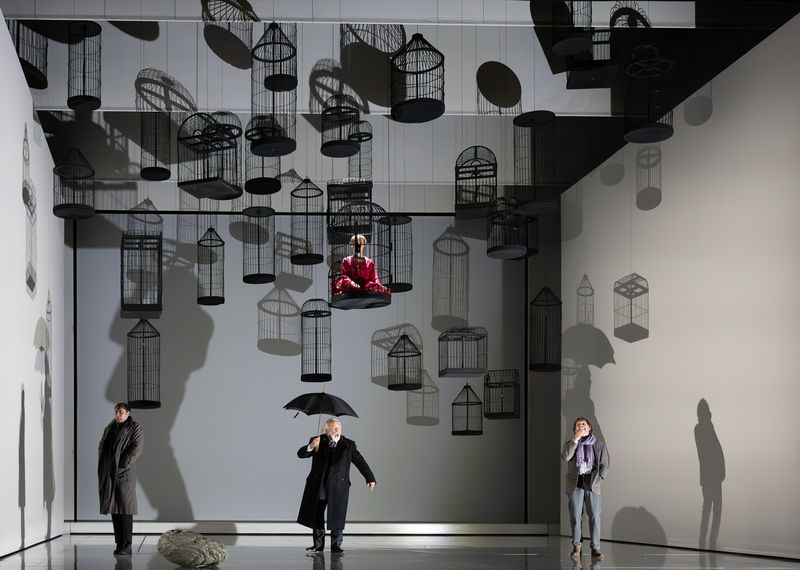 I sympathise with those (like my esteemed colleague) who find this stuff irritating. But I have to say that I was not too distracted by it to miss the emotional and dramatic concentration that the production achieves, through or in spite of it. Concentration, of means and method, is one of Janáček’s great qualities, and one that calls for a particular feel for pacing and the special character of each moment on the part of the conductor. Robin Ticciati has this feel, and this is an outstanding performance from the London Philharmonic Orchestra upwards, with extraordinary attention to instrumental detail, exquisite string playing in the final scene, painstaking balance throughout (not always easy in Janáček), but also a strong sense of the stage, immaculate coordination of music and idea.
I sympathise with those (like my esteemed colleague) who find this stuff irritating. But I have to say that I was not too distracted by it to miss the emotional and dramatic concentration that the production achieves, through or in spite of it. Concentration, of means and method, is one of Janáček’s great qualities, and one that calls for a particular feel for pacing and the special character of each moment on the part of the conductor. Robin Ticciati has this feel, and this is an outstanding performance from the London Philharmonic Orchestra upwards, with extraordinary attention to instrumental detail, exquisite string playing in the final scene, painstaking balance throughout (not always easy in Janáček), but also a strong sense of the stage, immaculate coordination of music and idea.
At its focus on the stage is the superbly intense and eloquent Katya of the Czech soprano Kateřina Kněžíková, the only main survivor from the original production. She even possibly benefits from the empty stage, wrapped up in her own psychosis, battering against the white walls vocally as well as physically. Her control in this difficult music never wavers, her ability to convey the incurable torment of this young woman whose instability clearly pre-dates her tragic involvement with the Kabanovs, while maintaining a beautiful expressive line: all horribly, movingly truthful.
The rest of the cast inevitably play to her. Only the clear headed, outdoor loving Kudryash (precisely drawn here by Sam Furness) stands somewhat aside, a litmus test of the obscurantist, authoritarian old Russia represented by Katya’s mother-in-law Kabanicha and the dreadful drunken uncle, Dikoy: Susan Bickley offers almost a parody of the domestic tyrant as she tears the wings off Katya’s unresisting angel (Miryam Tomè); John Tomlinson is all too convincing as her sado-masochistic “victim”, his wings long-since clipped. 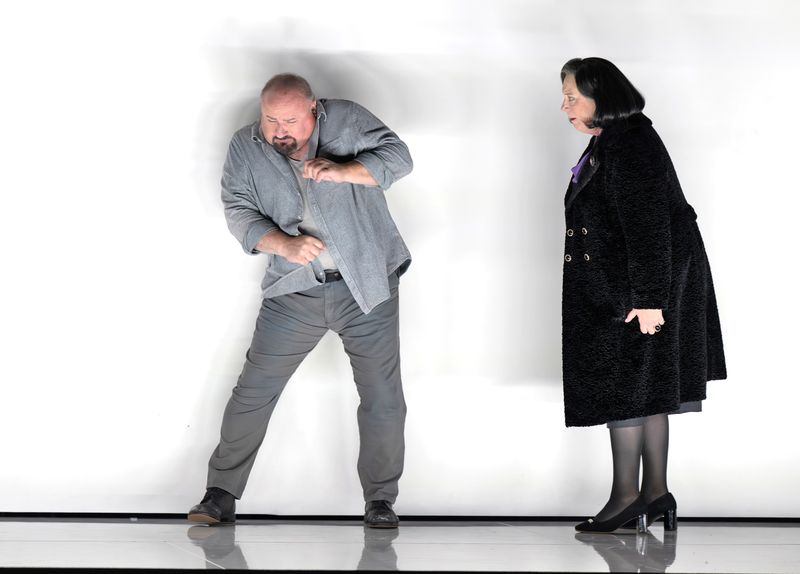 Jaroslav Březina grovels impressively as the nephew Tichon (pictured above with Susan Bickley), Katya’s husband; Nicky Spence (Tichon in the original staging) converts well enough to the lover, Boris, not an easy character to draw – perhaps even a figment of Katya’s hysteria (the tenor voices required are similar, the characterisation of Boris vague). Rachael Wilson cavorts sweetly, vacantly as Tichon’s deceptively undamaged sister Varvara, who runs off with Kudryash to Moscow – the eternal Russian escape into illusion.
Jaroslav Březina grovels impressively as the nephew Tichon (pictured above with Susan Bickley), Katya’s husband; Nicky Spence (Tichon in the original staging) converts well enough to the lover, Boris, not an easy character to draw – perhaps even a figment of Katya’s hysteria (the tenor voices required are similar, the characterisation of Boris vague). Rachael Wilson cavorts sweetly, vacantly as Tichon’s deceptively undamaged sister Varvara, who runs off with Kudryash to Moscow – the eternal Russian escape into illusion.

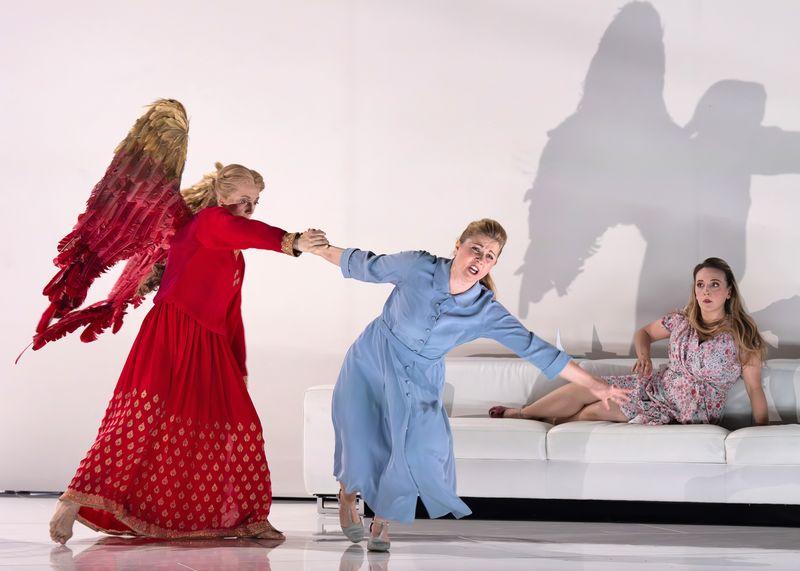









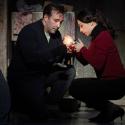
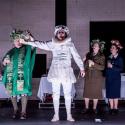
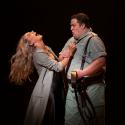

Add comment